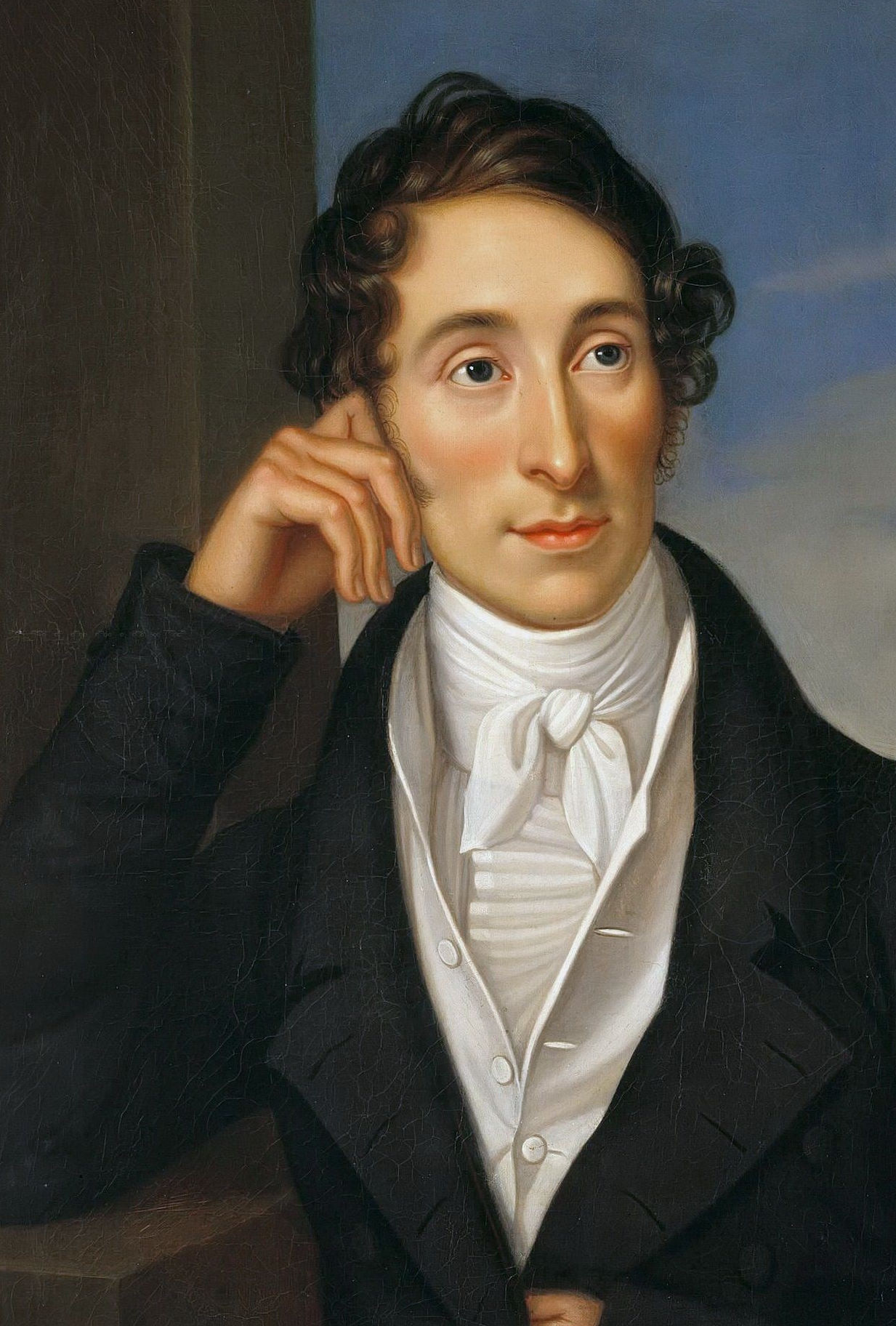|
||
|
Carl Maria von Weber is widely regarded as one of the founding fathers of German romantic opera, beginning a tradition that was later developed principally by Richard Wagner. Der Freischutz (The Marksman) is considered the first important work in the genre. It has all the elements of romanticism - a story based in folklore; supernatural events; a wild and rugged portrayal of nature and the eventual triumph of love over evil. The story tells of a marksman, Max, who is driven by his ambition to consort with a devil to forge some magic bullets that will hit whatever target he chooses. What he doesn't realise is that seventh bullet belongs to the devil, and his treacherous companion, Caspar, has persuaded the devil to use it to kill Agathe, the beautiful and virtuous girl that Max hopes to marry. In the end though, with the intervention of a hermit, the seventh bullet strikes Caspar rather than Agathe. Max is forgiven and the opera ends in triumph. The overture is in sonata form with a slow and mysterious introduction. The first subject is taken from the scene where the magic bullets are forged in a wild and remote wolf's glen. It is in the minor mode, and highly dramatic. The second subject is taken from the triumphant finale of the opera, and is in the major mode. Der Freischütz was one of Weber's most successful works, and is still performed regularly in opera houses. The overture has become a very popular concert item, along with the famous huntsmen's chorus that opens act three. The overture to Der Freischutz was performed by the Portobello Orchestra on the 4th April 2017, conducted by Sam Jones. back |

